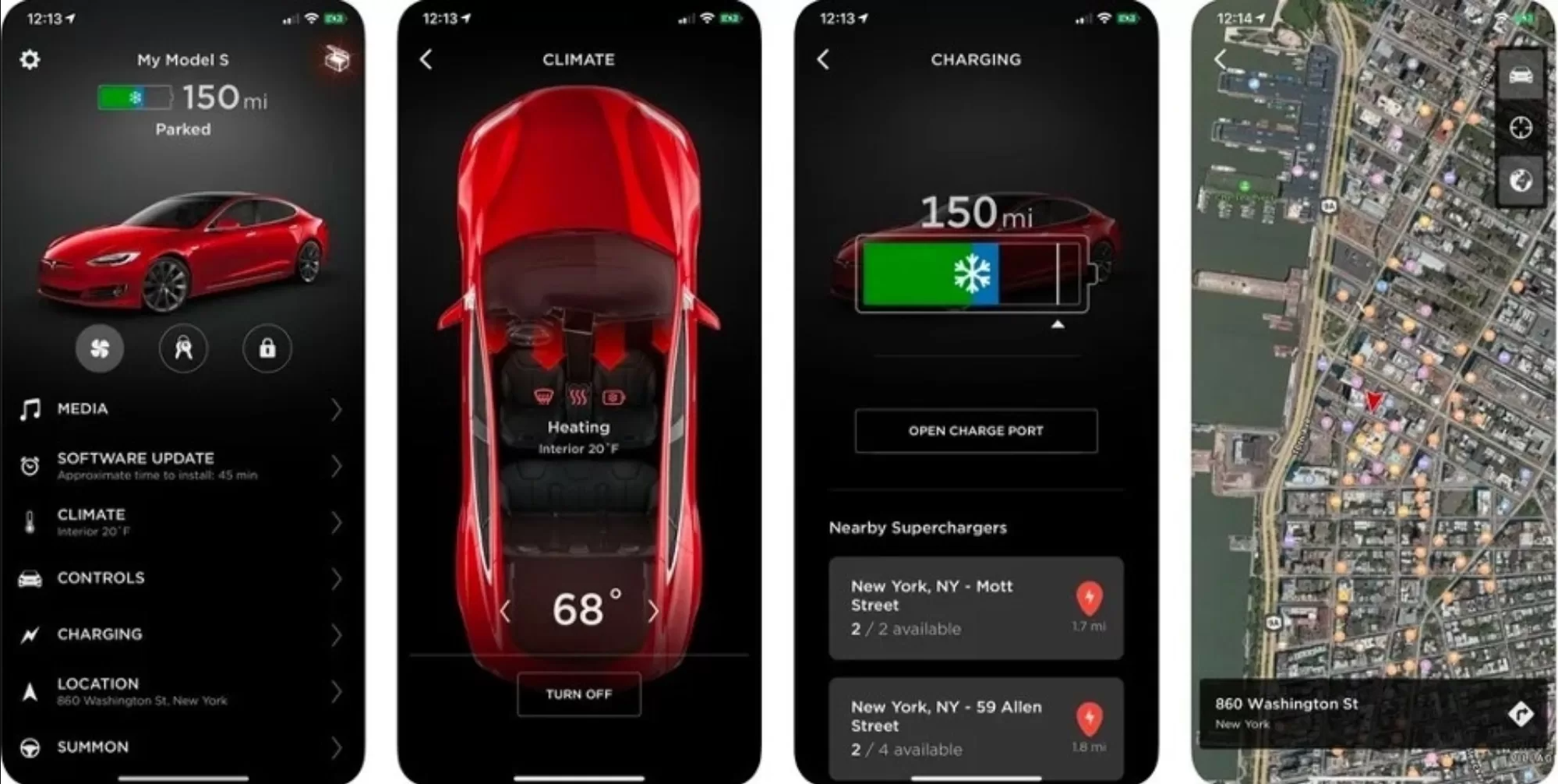Tesla Tech Allowed An Abusive Husband To Break A Restraining Order, And A San Francisco Judge Sided With The Automaker
The man used the Tesla app to track his estranged wife and leave a threatening message behind
The Tesla app is pretty much mandatory when you drive the American EV manufacturer's products. It's capable of controlling so many vehicle functions, including everything from HVAC to mapping out your next charge. One California man, an abusive husband with a restraining order, used the app for something much more harmful. The Tesla app can be a silent technological partner in stalking and furthering abusive control practices.
According to a lawsuit filed by the abused, the man was listed as the primary owner of the 2016 Tesla Model X they shared, and as a result he was able to track her whereabouts and open the doors of the car remotely. A police report states that this dipshit once threatened the woman with an aluminum baseball bat, and later left the same bat on her back seat while she was out.
Here's what Reuters said about the case:
The San Francisco woman sued her husband in state Superior Court in 2020 on claims including assault and sexual battery. She later named Tesla as a defendant, accusing the automaker of negligence for continuing to provide the husband access to the car despite the restraining order against him. Her lawsuit sought monetary damages from Tesla.
The woman made multiple requests to Tesla in writing and in person, according to her lawsuit, seeking remote data logs and asking Tesla to disable her husband's account. The requests started in 2018, more than a year before Radford, the police investigator, sought data from Tesla.
Tesla told the woman that it could not remove her husband's access to the car's technology because his name remained on the vehicle's title as a co-owner, along with hers, according to records she filed in her lawsuit.
A judge agreed that Tesla could not revoke the man's access to a car he co-owned. San Francisco police requested evidence from Tesla regarding the car in question and the data delivered to the man's app. Tesla itself denied the request, and argued that since there was no proof that the woman's husband used the app to stalk her, it wasn't legally responsible for acting on her behalf. Tesla stated in response to the San Francisco case that it "does not have a specific companywide policy" for handling stalking allegations in relation to its vehicles or related technology.
Despite both the husband and wife labelled as co-owners on the car's title, the husband set himself up as the account administrator on the app, and listed his wife as an additional driver, giving himself another level of control over her. The couple separated in 2018, after the unnamed reportedly suffered repeated physical and sexual abuse. For several months afterward, the woman would return to her car to find the doors open, the suspension settings changed, and the vehicle's ability to charge turned off. An anti-domestic abuse advocate group sent Tesla letters requesting the company preserve data logs of these events, and remove the husband's access. Tesla claimed in court that it could not find these letters in its files.
Despite the company having access to the data, its legal defense in this case was to gaslight the abused woman. Tesla sided with the husband, who denied he'd stalked her or used the app to mess with her car. It successfully defended itself against the woman's lawsuit saying she had "no proof other than her "belief and imagination" that her husband used the car's technology to stalk her." Judge Curtis Karnow agreed, writing in a 2022 opinion that both the woman and her husband had a right to use the car technology.
While there is a likelihood that other automakers allow similar controls in their apps as well, I would hope that other automakers would act more responsibly when asked to provide proof of a serious crime, or even do something as small has having a companywide policy. So much of Silicon Valley is about "breaking things and moving fast" or whatever, but in this case the thing they're breaking is potentially a woman's life. Be more responsible with your tech, and think about how it could be used for evil.
